Democracy Newsletter: November 2023By Steve Zolno 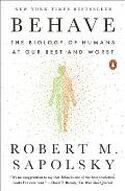 Our October 9 discussion was about whether people can change their behaviors to heal the world rather than engaging in the destructive patterns in which we have participated since humans walked the earth. We focused on the popular book Behave: The Biology of Humans at our Best and Worst, by Robert Sapolsky, an evolutionary biologist at Stanford. For my quotes and notes on the book or for a link to a recording of our discussion, email me. When we think about science we usually consider the ability of humans to make sense of our world and universe, and to apply that knowledge for the common good. We expect science to provide an explanation of the forces of nature that we can harness to make our world work better. Implicit in much of science is the idea of causality — events lead to other events in a predictable manner — and an expectation that we can use that understanding in our quest for meaning and a better world. Sapolsky provides insight into the human experience based on years of observation and experiment to guide us in moving beyond the world we have created to the one in which we want to live. 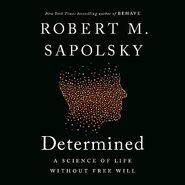 In his comprehensive but rather rambling 700-page book, Sapolsky explores the biological and historical patterns of both our constructive and destructive behaviors. He discusses our inner motivations as well as our actions. He also considers the choices we can make to move the world toward a place that works better for us all. That might contradict the thesis of his new book: Determined: A Science of Life Without Free Will, but more on that later. Sapolsky starts Behave by stating that aggression is a natural part of our makeup: “We always are shadowed by the threat of other human beings harming us (Page 2).” He cites observations of primates and other animals — as well as human studies — to make that point. He demonstrates that throughout the animal kingdom up to — and including — ourselves it ultimately is cooperation that allows us to live together and civilizations to advance: “The realm of humans harming one another is neither universal nor inevitable (Page 4).” He notes that we are the only species that harm others because of ideology (Page 11), and that our words form the basis of beliefs that we impose on the world (Page 16). 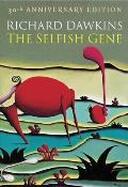 An important question he asks is: “Does pure altruism actually exist (Page 18)?” Are we motivated by a desire to make the world a better place, or are all our actions based on narrow self-interest? (See Richard Dawkins: The Selfish Gene.) In the next chapters he focuses on how brain structure and hormones interact, and the cortex, which commands us to move our muscles and where language is comprehended, and the amygdala, which controls aggression. He tells us that our default natural state is trust (Page 39), but we learn distrust from experience. Using our brain for self-control takes energy of which we have a limited amount (Page 49), and involvement in social structures actually expands the frontal cortex (Page 51). Dopamine is evoked by the anticipation of pleasure and reward and increases as we cooperate with others (Page 66). He cites the power of words to evoke strong emotions (Page 89) and the aggressive behaviors that can result from them. Regardless of what they are taught, children who witness violence are more likely to act aggressively because it becomes embedded in their nervous systems (Page 198). But personality development differs by culture: collectivist (usually Eastern) cultures emphasize interdependence and individualist (usually Western) cultures emphasize independence and competition. Only humans are capable of passing on cultural values and skills that develop for countless generations. With a few exceptions, we have moved from the hunter/gatherer stage to agriculture, from exposure to the whims of nature to building shelters (Page 270). Hunters/gatherers in small groups usually have been more egalitarian, but as we developed complex states, we created hierarchies with great gaps between those on top and bottom (Page 291). Regardless of what we may consider our advanced civilization, we have retained our innate tribal tendencies, which divide others into those we think are like us and those who are not — Us and Them (Page 416). We tend to act on those tendencies regardless of how much we might profess to believe in constructive communication. But our emphasis on competition rather than cooperation can lead to chronic stress that causes heart disease, diabetes, and other chronic maladies (Page 423). 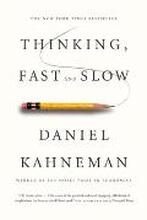 Most of our conversations are devoted to emphasizing the negative — what is missing — rather than clarifying the direction we want our lives and societies to move (Page 503). But seeing the negative also may have evolutionary advantages in that it allows us to identify threats. Irrational optimism in warfare may be dangerous to your health (Page 643). (see Daniel Kahneman: Thinking, Fast and Slow.) Most of the rest of the book is devoted to how cooperation and conciliation are as much a part of our nature as aggression. Militaries know that most people have a natural aversion to killing and try to train that out of them (Page 647). Sapolsky points to the helplessness many people feel to create positive change, but reminds us that there have been those who have made a difference through persisting in their visions of peace and the value of all human beings, such as Gandhi, Mandela, MLK, Lincoln, and many others (Page 652). He points to the mass movements that began progress toward democracy, but many have faltered in such places as Egypt, Tunisia, and Venezuela (Page 653). One-time enemies have chosen reconciliation numerous times, such as between the US and our combatants of the World Wars, and our venture in Vietnam (Page 655). We now recognize the folly of much of the genocide of the past, such as the treatment of African slaves and Indigenous Americans, but do we recognize it when it happens in our own day? Sapolsky acknowledges the importance of our upbringing on our actions, but insists we can find alternatives to chronic aggression. The assumptions we carry about others and the world in our minds can keep us from constructive dialogue. He states that there is an underlying experience we seek from our interactions and worldly quests: “Often we’re more about the anticipation and pursuit of pleasure than the experience” (Page 672), and claims we do not need to be bound by our backgrounds, but can focus our attention on our vision of how the world should work: “You don’t have to choose between being scientific and being compassionate” (Page 675). Sapolsky clearly is very caring about the direction of our world. No one watching his popular videos could doubt that. But in my view, it is his grounding in the classic causal scientific model that limits the vision he conveys. If our actions — and the universe — primarily are the result of a series of events (unfortunate or not) that lead one to another, then what happens is indeed predetermined. But it seems he hasn’t really considered the full implication of the determination he espouses. If everything we do is predetermined, then our coming to that conclusion also is predetermined, so belief in predetermination is meaningless. And that view doesn’t really follow what much of science and philosophy tell us. A hundred years ago the quantum physicists told us that what happens is not predetermined, but only can be predicted with a limited degree of certainty. Our expectations about what will happen often are wrong because they are based on incomplete observation. There are limits to our understanding. We often can’t really know what those around us will do or say; weather reports frequently are mistaken; the prediction of a vast majority of economists that we would be in a recession by now was wrong (as they admit). Even if everything that happens is predetermined, we don’t have enough information to know how things actually will turn out. The universe is immense, and we only can frame it through our limited thought processes. Einstein, Hawking, Heisenberg (uncertainty principle) and many others have expressed awe about the mystery of nature and how little we really know. 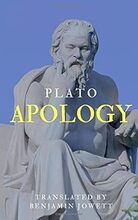 So healing the world of the problems we have created, in my view, begins by admitting how little we know, rather than affirming how much we know. When aware of how little I know about others I am forced to let go of my preconceptions. To follow Socrates, all we really know is that we know nothing. (See Plato’s Apology, 22d) When we interact from that place, we are closer to reality than we are from our assumptions about others and the world. Of course, we must still rely on our concepts, but realizing their limits is the beginning of real understanding. The knowledge we have accumulated has built our civilizations, saved lives, and allowed us to live much longer and conveniently than previous generations, at least in the Western world. But it also has allowed us to erect the false god of thinking as our only source of understanding. Our current knowledge eclipses what we knew 100 years ago, but 100 years from now people will look back and be amazed at our ignorance. Plus, our emotional side gets lost when we dwell only on the rational. Acknowledging the limits of our perceptions puts us in a place of profound humility. We are less likely to think that we and members of what we consider our group are better or worse than others. We are less likely to encounter others as threats. We are more likely to make realistic assessments of others and the world as we realize the limits of our concepts and engage who and what is around us in a way that is more genuine and personally fulfilling. This leads to having greater respect for every human being, and as we do this, we experience the respect we seek. Acknowledging our limits and common humanity allows us to return — if only cautiously — to the sense of trust that Sapolsky considers our original state. Steve Zolno graduated from Shimer College with a bachelor’s degree in Social Sciences and holds a master’s in Educational Psychology from Sonoma State University. Steve has founded and directed private schools and a health care agency in the San Francisco Bay Area. He is the author of six books Please recommend this newsletter to people who you think might appreciate it. If you want to be added to the email list to receive each new newsletter when posted, fill out our contact form and check the box just above the SUBMIT button. You may also use that form to be removed from our list.
Visit our Books page for information about purchasing The Future of Democracy, The Death of Democracy, Truth and Democracy, and Guide to Living In a Democracy. Click ↓ (#) Comments below to view comments/questions or add yours. Click Reply below to respond to an existing comment.
0 Comments
Your comment will be posted after it is approved.
Leave a Reply. |
 5th edition now available 5th edition now available
Steve ZolnoSteve Zolno is the author of the book The Future of Democracy and several related titles. He graduated from Shimer College with a Bachelor’s Degree in Social Sciences and holds a Master’s in Educational Psychology from Sonoma State University. He is a Management and Educational Consultant in the San Francisco Bay Area and has been conducting seminars on democracy since 2006. Archives
July 2024
Categories |
 RSS Feed
RSS Feed